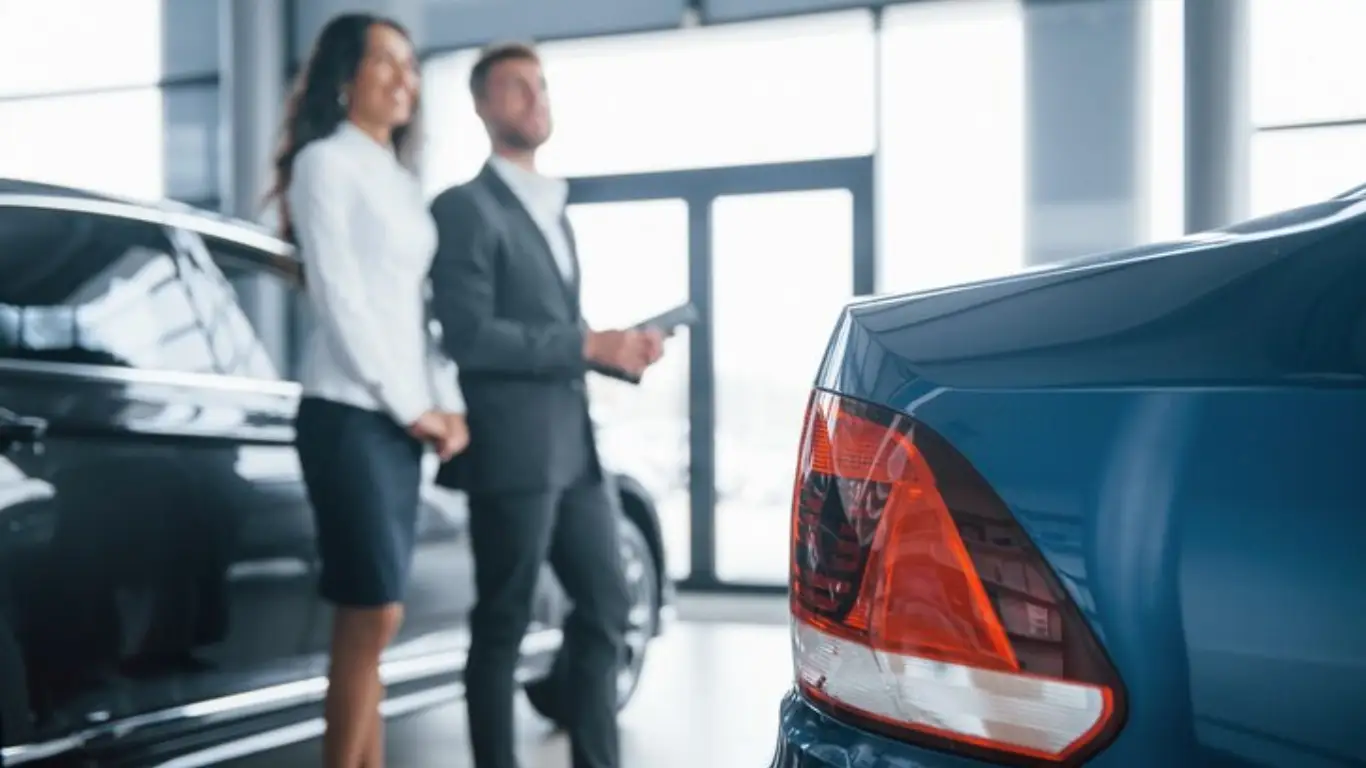
Auto Academy

How to Find the Best Used Cars for Sale in Canada? 10 Tips in 2025
Do you want to purchase used cars? You are not the only one; last year alone, more than 36 million used vehicles changed hands in private-party and dealership sales. This is actually the least number in a decade, which means owners are holding on to their cars longer because of ever-present economic uncertainty. With fewer options than in other years, it's even more necessary to have a sound strategy when shopping the used market. Here we are going to tell you how to buy used cars, some signs that can help an individual realize the history and conditions of a car, and tips for buying used cars from dealers.
1. How Much Can You Afford for a Car?
If you're taking out a loan for the car, then the best guideline is to limit your monthly payment to 10% of your earnings after paying the taxes. If you are budgeting closely, you might consider less than 10% because used cars are often less than perfect and needs things like tires and parts replaced and more maintenance. You even need to consider the other expenses of ownership, such as fuel and insurance. You need to quickly think how much you will save for unexpected repairs when buying a car out of warranty.
2. Make a List of Targets Used Vehicles
For example, the Honda CR-V and Toyota RAV-4 are good types of used cars because they tend to be popular with consumers. But because of that popularity, they are more expensive than a slightly less fashionable Ford Escape or Kia Sportage, which are also very good. If the expense of just one brand is not enough to get you what you want, try combining more than one brand.
For those in the market for a vehicle under 5 years old, check out the certified pre owned Automobile (CPO) cars. They're essentially long-term warranties that remain with the manufacturer-no more dealership sales. Only franchised dealerships that sell that same car brand new can sell a CPO car of the same brand.
Read More: Used Car Buying Guide
3. Check Prices
Prices are partly affected by where you are shopping. They come to used cars in used cars sections in new car dealerships, independent used car lots, used car retailers like Carrookie as a platform of new and second hand cars in Canada, and many more private party sellers nonstop. Of the four, generally, private party cars are the least expensive with standing CPO cars highest in price due to fewer miles, being in better condition, plus warranty coverage.
4. Find Used Vehicles for Sale
One convenient place to start your target list is the Carrookie used cars list pages. Filter your search by any of several criteria: price, mileage, features, distance from dealer to dealer, and you will soon find the exact car you want. Most of the other sites have somewhat similar methods of finding vehicles nearest to you.
5. Verify the History Report of the Used Cars
Obtain a vehicle history report unless you're buying it from a close relative or a friend who knows the vehicle's history. It is a very early stage. You would want to know early if a car you're looking at has a bad history report. The best-known source for vehicle history reports is Carrookie. These reports can contain important information about the car, including whether the odometer has been rolled over or has even a salvage title (meaning that this vehicle has been deemed a total loss by the insurance company).
This information will be obtained using the vehicle identification number (VIN). In certain cases, you need the license plate number. Most of the major used car dealers provide these reports free of charge as long as that vehicle is in their inventory.
6. Contacting the Seller Before Buying Used Cars
Now that you've found a potential car, don't run in to see it, call up the seller first. You do this to establish a connection with the seller and to verify all the information about the car. Ask private-party sellers why they are selling a car or what its mechanical problems might be. If you are buying from a dealer, a phone call or text is the best way to ensure it is still there.
Sometimes the seller will say something that was not in the ad and can make you change your mind regarding the car. If you want to go further, the used car questionnaire is quite a good reminder of what to ask. Our final question is about the asking price of the car. Well, many will want to negotiate even before seeing the car, however, it is better to wait and tie the offer to the condition of the car.
If the discussion is going on the right track, schedule a test drive. Test drives should be scheduled either during the day or under some other lighting conditions where shady areas can still be illuminated.
7. Drive the Car in for a Test is Essential for Buying Used Cars
To truly know that used cars is the right one for you and has the best selling in the market, test-driving it is the best option. It can help you determine the condition of the specific car. So, tune out your distractions.
Here are some things to check:
- Is it easy to get in and out of the car without stooping or banging your head?
- Is the headroom, hip room, and legroom enough? Check out the back seat space as well.
- How are the driving position and comfort? Do you sit too low, too high, or just perfectly right in the car? Can you tilt or telescope the steering wheel to better fit your position?
- And how are the seats? Are they comfortable? Easy to adjust? Does the driver have lumbar support? What about that of the front passenger?
- Is the check engine light on? If so, get that problem checked out before purchasing.
- How's the visibility? Take a look at the rearview and side mirrors. Also, look for possible blind spots.
- Use your nose. Smell gas? Burning oil? Or is anything else distinctly bad?
- Tires: One, how old are they? Two, is enough tread present?
- How are the brakes? Are they stopping the car effectively? Do they squeak?
- Pop the hood. No, you don't have to be a type of geek to spot that something is wrong. Check around the engine area for lines, hoses, and clamps. Wiggle hoses to check the integrity of the rubber. Dried or cracking hoses will need replacement, so factor that into your discussions on price. If something is leaking, steaming, or covered in oil, it's time to ask questions.
- Is cooling coming from the air conditioner? Are the headlights, brake lights, and turn indicators functioning? Test them to be sure.
After your test drive, find out if you can see the service records from the owner or dealership. These will let you know whether maintenance has been done or at fixed intervals.
Read More: Second hand car price calculator
8. Have the Used Cars Checked
When you fall in love with a car, it's best to have it checked out by a mechanic to find out the truth about it before you purchase the car. You might get it to your mechanic's garage if you have one you like. One may even invite you to take the car to the garage where the mechanic works. Just know that it's not going to be as good as in their shop, with all their paraphernalia and car lift, because probably they can't do that either.
Prepurchase inspection costs between $100 and $200, reporting to you all the things you might not see and saving money in the long run—now that's a smart buy second hand vehicles if you're serious about a crumby car.
Most private sellers will allow inspection of the vehicle without much fuss when the bargaining is about the deal. However, that does not apply to all. One way that could help others is to meet the seller at the mechanic of your choice. If the person has an objection, then that can be a potential reason to suggest deeper issues with the car or that the seller has not bothered.
A pre-purchase examination usually takes about an hour or even less. Most dealers that you would approach for that would discourage you by allowing you to drive a vehicle to the outside mechanic. If they will be charging you for the service, then an inspection has already been conducted, and the vehicle carries a warranty because it is CPO, so less motivation exists for taking the car into an independent workshop.
Read More: Tax on a Car in Ontario
9. Make the Best Deal Possible When Buying Used Cars
Are you dreading the thought of “talking numbers”? It shouldn’t have to be this way. Negotiating doesn’t have to last for months. It can be done quickly and painlessly if you are reasonable and have a plan—that, probably, saves time.
Decide upfront how desperate you are to get the car and how much you would spend to get it, but don’t start the bargaining with that figure. Make a first offer lower than your maximum but reasonably close, given your research into average amounts paid for the car. Add that you have done your research on Carrokie or wherever so that you have facts to support your offer.
If you find two cars with a price that seems good, very close to the average price paid, then these are probably okay.

10. Complete the Document Processing
When purchasing from a dealership, the contract signing typically takes place in the finance and insurance office. Here, you may be offered additional products such as extended warranties (for non-CPO vehicles), anti-theft devices, prepaid service plans, or even protective coatings for the car's underbody or upholstery. While these options can provide peace of mind, consider them only if the vehicle isn’t already covered under the manufacturer’s warranty or if it isn’t a Certified Pre-Owned (CPO) car.
Before finalizing the deal, make sure to carefully review the dealership sales contract. It will usually include the car’s price, a documentation fee, sales tax, licensing fees, and possibly a charge for a smog certificate.
For private party sales, ensure the seller properly transfers the title and registration to you. Always ask for the title (pink slip) before exchanging money, and have the seller sign it over to you. Vehicle registration rules can vary by province, so it's a good idea to check with your local DMV to ensure there are no outstanding registration fees.
Lastly, before driving away—whether from a dealer or private party—make sure you’ve arranged insurance for the car. Once all the paperwork is in order, you’re ready to enjoy your new ride and the savings you’ve made on your purchase!
Read More: Canada Car Rebates
11. Why the Used Toyota Camry is a Smart Choice
The Toyota Camry is a popular choice for used car Toronto buyers in Canada due to its reputation for reliability, low maintenance costs, and excellent fuel efficiency. Here’s why it’s worth considering:
- Reliability & Longevity: Known for lasting over 200,000 km with proper maintenance, the Camry is a great long-term investment.
- Affordable Ownership: It has lower maintenance and repair costs compared to many other sedans, making it budget-friendly.
- Fuel Efficiency: The Camry, including its hybrid model, delivers excellent fuel economy, saving you money at the pump.
- Safety: With advanced safety features like adaptive cruise control and lane departure warning, the Camry offers peace of mind for drivers and families.
- Strong Resale Value: The Camry holds its value well, making it a good choice for both buyers and future sellers.
What Is the Best Fuel Economy Used Cars?
Here is the top best fuel economy used cars in the market:
-
Toyota Prius (Hybrid)
MPG: 50+ city / 50+ highway -
Honda Civic
MPG: 32 city / 42 highway -
Hyundai Elantra
MPG: 33 city / 41 highway -
Mazda3
MPG: 28 city / 37 highway -
Ford Fiesta
MPG: 27 city / 37 highway -
Chevrolet Cruze
MPG: 30 city / 40 highway -
Nissan Versa
MPG: 27 city / 36 highway -
Honda Insight (Hybrid)
MPG: 40 city / 44 highway -
Toyota Corolla
MPG: 30 city / 38 highway -
Kia Soul
MPG: 24 city / 30 highway
Read More: What Does Financing a Car Mean?
Tips for Buying a Used Toyota Camry in Canada
- Research Model Years: The Camry has been around for many years, and different model years come with varying features and prices. Be sure to check reviews and reliability reports specific to the model year you’re interested in.
- Certified Pre-Owned (CPO): If you're looking for a bit more peace of mind, consider a Toyota Camry CPO model. These vehicles undergo a rigorous inspection and come with an extended warranty, making them a great option if you want the benefits of a new car at a more affordable price.
- Check the History Report: Just as with any used car, it's essential to get a vehicle history report. The Toyota Camry's long lifespan means that previous owners might have put considerable mileage on it, but a clean history report can help you avoid cars that have been in accidents or suffered severe damage.
- Pre-Purchase Inspection: Even if you're buying from a dealer, it's always a good idea to have the car inspected by a trusted mechanic. A used Camry in great condition can be a gem, but an inspection will ensure there are no hidden issues.
By following the tips above and considering the used Toyota Camry, you can find a reliable and cost-effective car that serves your needs for years to come. If you're interested in browsing available Camrys in Canada, platforms like Carrookie offer comprehensive listings, including detailed history reports, to help you make an informed purchase decision.
Conclusion
Buying used cars takes long-term planning. You should consider the budget, thoroughly research the car from potential dealers, inspect it, and before finally closing the deal, negotiate with the owners. Explore cars for sale in Canada and examine reliable used cars: check history reports, schedule inspections, and complete paperwork.
Find the perfect ride for you today! Explore a large number of new and used cars with Carrookie, the trustworthy platform in Canada for car shopping with no hassle. Compare prices, see history reports, and connect with sellers easily. So start searching now and have a prestigious drive!
FAQ | Used Cars
Don't invest in salvage-titled vehicles, those over 200,000 miles, with irregularities in odometer readings, and with no proof of maintenance. Vehicle history reports would reveal many such things. Models that regularly exhibit issues should also be investigated.
Tends to be a used car, lesser mileage is always better. A general thumb rule is taken as being about 12000 miles per year. Low mileage does not equal a good used car; preferably, a car with 70,000 miles and a full history of maintenance is even better than a 30,000 mile-no maintenance history.
A dealership has many benefits over a private seller. Often, the vehicle has been reconditioned (detailed, upholstery cleaned or patched, infotainment software updated), access to auto loans, and a chain if anything goes wrong with the deal. Conversely, a private seller usually provides more information on how the vehicle has been maintained, and is less tedious to negotiate for a lower price.

